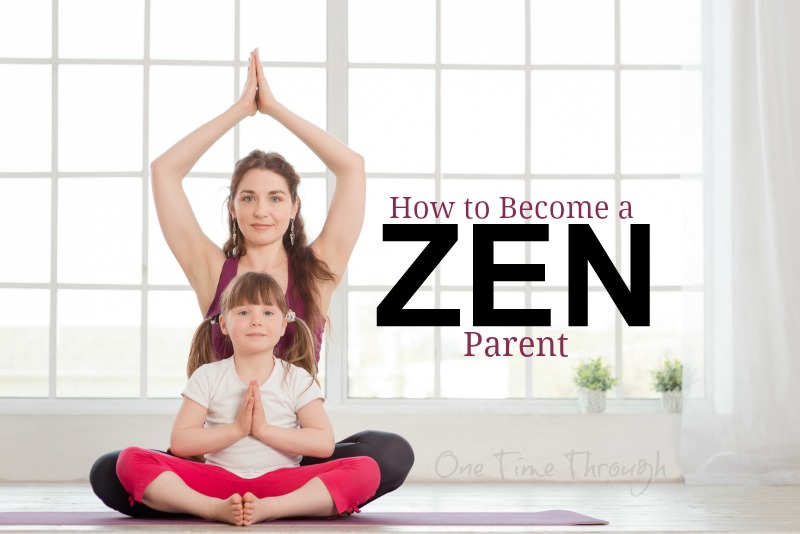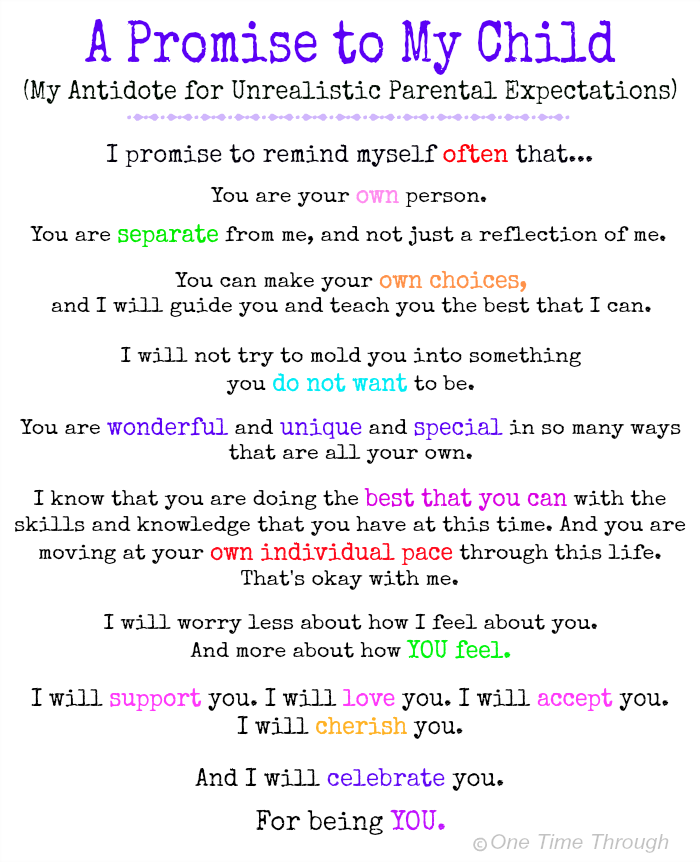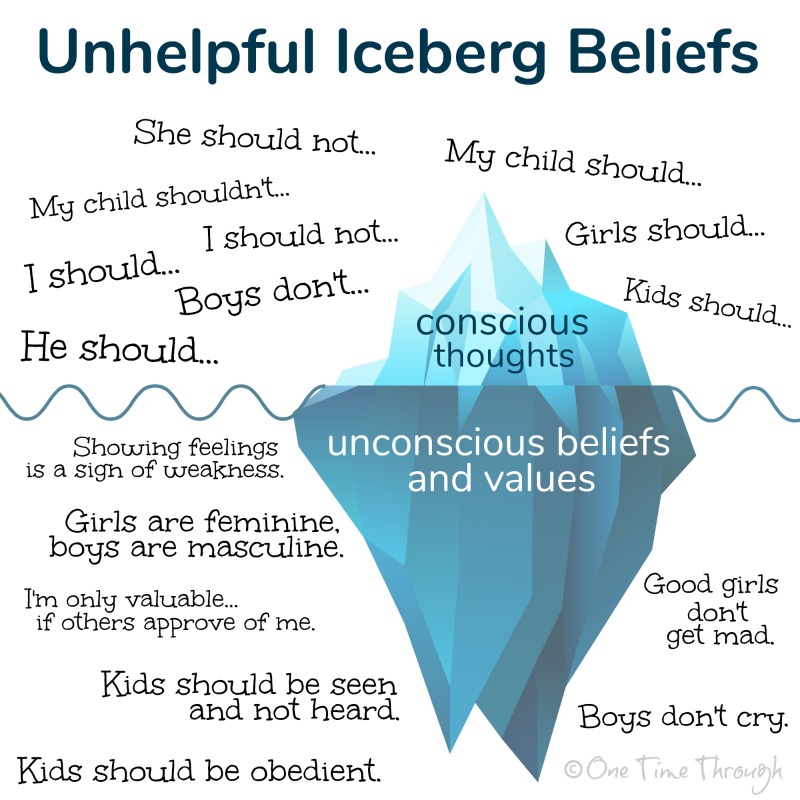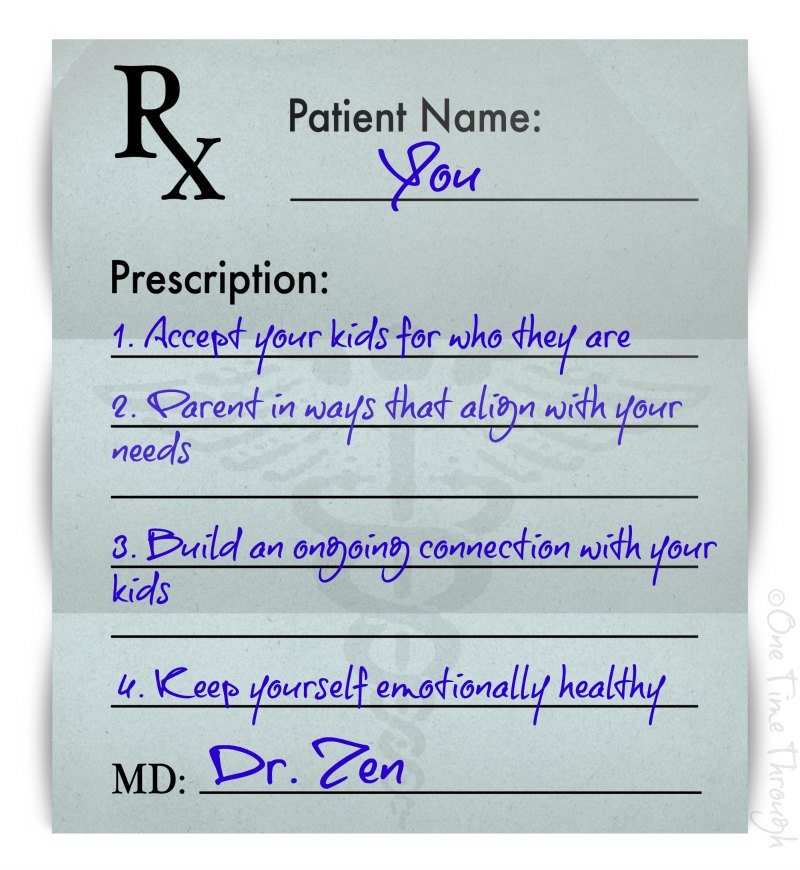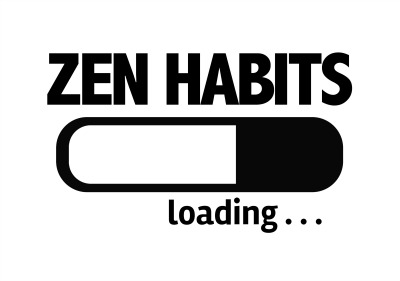If you’re anything like me, you may never stop worrying about your kids. No matter what age they are.
You may never stop getting irritated or frustrated, or even angry with them when they make choices you don’t like.
You may never get used to the fast pace of having kids in your life while trying to work, or following your own life’s purpose and passions.
And you may never be that constantly calm, always engaged, connected, and happy parent that sometimes you think you should be.
But…you can become a more Zen parent – just like I have! With just a few tweaks in your thinking, and a couple of goals to mindfully follow.
Amazon Affiliate links are included in this post. Read my full disclosure here.
According to the Cambridge dictionary, the word Zen means “relaxed and not worrying about things that you cannot change.”
I personally love this Zen-like saying (below) that’s hanging on the wall in my house in a place where I can see it regularly.
Wow! Can anybody actually DO that?
It seems so simple, and yet it’s really a monumental task for some of parents whose brains tend to not have a figurative worry OFF switch (I’m speaking from personal experience here!).
For me, I probably never will become a totally Zen parent, much less a Zen person. But it is possible to become more Zen. I know, because although it’s a work in progress, there are things I’ve learned that have really made a difference for me in my quest for Zen.
The Zen Mama Quest
If you are feeling less than Zen about your parenting, you may want to ask yourself what you are telling yourself in your head?
As parents, our Zen challenge is sometimes that we continually beat ourselves up for not being “good enough” parents. We can have thoughts like…Why can’t I manage my son/daughter? Why am I always getting mad at my kids? Am I doing the best job I can do?
Other times, our challenge is that we get frustrated with our kids’ behaviours and think they are the reason we are not Zen. You may have thoughts like…If only Joey would start listening to me, I could relax a bit. If only Suzie would stop arguing with her brother, we would have peace in this house.
Becoming a more Zen parent involves working on both of these thoughts, constantly challenging your unhelpful judgements of your parenting abilities, as well as any unhelpful beliefs about your children.
What is a “Good Parent?”
So let’s talk first about how to challenge your own unhelpful judgements. I love what Marshall Rosenberg, founder of the Centre for Non-Violent Communication, has to say about being good parents.
The definition of hell is in thinking that there is such a thing as a “good” or “bad” parent. ~Marshall Rosenberg, Founder of Non-Violent Communication Centre
(And then I might add, believing that you fall into the category of being a bad one!)
Marshall liked to say that, there are really just parents who are parenting in a way that is meeting their own need for connection and influence with their kids, and those who are parenting in a way that is not meeting those needs.
If you are sensing that you are not as connected with your kids as you might like, or that you don’t seem to have as much influence with them as you’d like, you are likely feeling upset. In addition to that, if you are judging yourself as somehow lacking in parenting ability, it is that thought that might be causing you to feel hopeless, sad, or even angry with yourself.
All of these thoughts can spiral into feeling like a “bad parent” when really, it’s just that your needs are not being met.
Of course, taking the opposite tack and just telling yourself that you’re an awesome parent, will not likely make you feel more Zen either. It’s a little more complicated than that…but stick with me!
A Case of the Shoulds and Should Nots
In order to start changing some of those negative thoughts, you need to identify them first. The Center for Non-Violent Communication advises us to to rid ourselves of the language that we use that labels ourselves and others as good or bad, or right or wrong in any way. It asks us to stop judging.
If you really think about it, most of the violence and anger in our world comes from judging and negatively labeling others (and sometimes ourselves.) All those “isms” like racism, sexism, and ageism…have judging and labeling at their root.
One of the biggest red flags of judgemental thinking is the use of the word should.
How Can I Tell If I’m Judging Myself?
Self-judging language occurs when you tell yourself that you should be doing something (or should not be doing something).
When you think things using the shoulds or should nots you often feel defeated, exhausted and even ashamed or guilty.
How do you feel when you say these following words to yourself?
I should be spending more time playing with my kids.
I shouldn’t yell so much at my kids.
I should be helping my child more with their schoolwork.
Instead, if you eliminate those words, you can replace them with non-judgemental phrases that express what you want or need such as:
I’d like to spend more time playing with my kids.
I want to find ways to be calmer with my kids when I’m frustrated with their choices.
I want to find a way to make more time to help my child with his schoolwork.
Do you hear and feel the difference in your body when you change the language you use when thinking these thoughts? To me, they feel so much more empowering, more hopeful, and so much more peaceful and accepting of myself.
Judging Our Kids
When it comes to our kids, it’s easy to fall into the trap of judgemental thinking if you find yourself unhappy with choices they are making.
For example, you might have thoughts like,
My child should be more athletic.
My child should be better at school.
My child should be more empathetic, more attentive, calmer…etc
When you say these things to yourself, you may feel frustrated and more prone to getting angry with them instead of accepting who they really are as unique little people. Or perhaps, you may feel hopeless or helpless to try and change them.
When I start thinking these thoughts, I refer to my Promise to My Child below. I wrote it for myself as a reminder of how I want to think about my son when I start to slip into a case of the shoulds.
Read more about having unrealistic parental expectations here.
Iceberg Beliefs
It turns out that thinking in judgemental ways, is reflective of an underlying value system called Iceberg Beliefs (coined by the Penn State Resilience program.) Iceberg beliefs reflect values that were passed on to us by our culture or our own upbringing like, “Big boys don’t cry.” or “Girls shouldn’t get angry.” (Did you notice the word should in there? I hope so!)
If you start to notice that words like should and should not pop into your thinking often, they are probably the result of some iceberg beliefs that are interfering with your ability to be the kind of parent you want to be.
Kinds of Iceberg Beliefs
According to the Penn Resilience Program, iceberg beliefs are often stored in our unconscious, implicit memory and often centre around three things: achievement and success, acceptance, and control.
Achievement-Oriented Beliefs
Achievement-oriented iceberg beliefs lead to unrealistic expectations for ourselves and others. Mistakes are seen as failures, and we tend to avoid doing things unless we think we can do them right. This style of thinking is also referred to as a fixed mindset.
If you hold these kinds of beliefs, you might find yourself being hard on your kids if they are not being as successful as you might like.
You might catch yourself thinking things like:
Why can’t Jackson ride a bicycle like all the other kids?
Why can’t Peyton write her work neatly?
Why can’t Blake read yet?
Acceptance-Oriented Beliefs
People with acceptance-oriented iceberg beliefs have a strong desire to be liked, accepted and praised by others, and want others to think the best of them at all times. If you hold these types of beliefs, you may struggle if your kids are not making friends easily, or if you think others don’t like your child.
You may have thoughts like:
Why can’t Johnny be more social?
Why can’t Jenna hug her Grandma and Grandpa?
Why can’t Ella talk to her teacher?
Control-Oriented Beliefs
People with control-oriented iceberg beliefs tend to feel uncomfortable when circumstances are out of their direct control (um…that’s pretty much life with kids right?), and they may have unrealistic expectations of themselves and others.
If you hold these types of beliefs, you may struggle when your kids behave in ways you don’t expect, or are just plain different from how you think your child should be (Again – did you notice the should I snuck in there? You’re getting good at this now!)
You may have thoughts like:
Why isn’t Blake interested in skating like all the other boys? I loved hockey at his age!
Why doesn’t Anna want to go shopping with me to buy a new dress? She doesn’t even seem to care how she looks.
Why does Johnny get so upset when it’s time to go to bed? Why can’t he just go with the flow like the rest of our family.
How Can You Spot an Iceberg Belief?
If you hold any achievement, acceptance or control-oriented iceberg parenting beliefs, you will know it if you find yourself reacting to your child in a way that is out of proportion to the situation or if the strength of your reaction takes you by surprise.(I have referred to these situations in other posts as parenting triggers.)
A second sign of a parenting iceberg belief is when ever you hear that voice in your head telling yourself a should or should not about yourself or your child. There goes that iceberg belief rearing its ugly head!
What is the Zen Prescription?
There are four things you can do as a parent to become more Zen and to tackle those unhelpful iceberg beliefs head on. Focusing on these four things can help you stay mindful with your parenting and will help you meet your need to connect with and influence your child.
1. Accept Your Child For Who He Is
If you struggle with wanting to change your child, you can resolve to continually work on accepting your child for who he is and for who he is becoming. Actively challenge those control-based iceberg beliefs.
One of the first critical lessons I received as a parent was in realizing that my son really was his own spirit with his own unique strengths, styles, and preferences. I laugh now when I look back and remember how it was such a shock for me to finally realize that he wasn’t now, and was never going to be just a “mini-me” of me and my husband that we could shape and mold however we wanted.
I’d like to say those thoughts are completely gone from my mind, but every now and then they creep in again and I have to continue to challenge them and to just accept. I owe that to my son.
2. Stay True to Your Parenting Values and Needs
In order to feel at peace with your abilities to parent, strive to stay true most of the time to what you truly value and need.
I value peace, love, and open-mindedness, and so I constantly work to parent in a way that aligns with those values.
For me, that means I strive to find ways to parent my son in a respectful, calm way. I put a priority on trying to understand what his needs are as well as considering my needs, and the needs of our family. I work to help him find healthy ways to meet his needs while considering those of the people around him.
As a strong believer that people are always doing the best they can with the resources, knowledge and skills that they have, I try not to beat myself up for “mistakes” I make in my parenting. I just continue to move forward doing the best that I can to consciously and mindfully be the kind of parent that I want to be, while guiding my son to be his best self.
When you screw up and lose your temper, or don’t respond with the empathy you might like, forgive yourself and move on. Look for ways to interact with your child in the same situation next time in a way that you’ll feel better about. Recognize that you too are a work in progress.
3. Build an Ongoing Respectful Connection
Try to be mindful about regularly building an ongoing, respectful connection with your kids. This one is really at the heart of positive parenting.
If you fully accept that your job as a parent is not to control your kids, but to love, guide and support them throughout their life, then I hope that you agree that regularly maintaining and caring for your connection is of primary importance.
After all, the more connected you are to your kids, the more influence you will ultimately have on their thinking and development.
For me, that means avoiding rewarding or punishing my son. That means spending regular quality time with him doing things we both enjoy, and that means regularly expressing love and gratitude to my son for just being himself and for being in my life.
4. Nurture Yourself
Try to nurture yourself and keep yourself mindful and emotionally healthy. My friend Jill, a mother of four, likes to say that she’s “taking care of her children’s mother” when she takes time to nurture herself. There’s no room here for guilt! Although your children may mean everything to you, you have to fill yourself up first in order to give them what they need.
As you’ve probably already experienced, when you fall apart emotionally from exhaustion or from too much giving, giving, giving and not enough you time, everything else in your home falls apart too. So many women do this, and yet we all know that it’s unsustainable in the long run.
Check out Jill’s video about the importance of taking care of ourselves.
The Zen Prescription…Does It Work?
Like any prescription, it often takes a little time for it to become effective at treating the problem. Following the Zen prescription may require you to make a few tweaks to your thinking and habits, or it might mean a huge overhaul in your beliefs and daily rituals.
Whatever it means for you, it will be well worth it. It has been for me.
I still worry about whether my son is doing well enough in school, making enough friends, and sticking up for himself appropriately. I still get irritated and frustrated by the choices he makes at times, and I often struggle with finding the energy to be an engaged and mindful parent while working and pursuing my own life goals.
But I don’t often fret about my ability to be a “good parent.” And I know that when I’m tempted to blame my son for things, it really is just an indicator on my personal dashboard that I need some me-time to nurture myself so that I’m ready to give again.
Thanks Dr. Zen!
Do you have something to add to the Zen prescription? I’d love to hear about it! Leave me a comment below.
All the best on your Zen journey,
